- Home
- Barry Eisler
Rain Fall Page 4
Rain Fall Read online
Page 4
But there was nobody better in the woods. He was like an animal you could talk to. He made people uncomfortable with his omnidirectional eye, his long silences. But when the sound of the insert helicopters receded into the distance, everyone wanted him there.
Memories, crowding me like a battalion of suddenly reanimated corpses.
Waste ’em means waste ’em. Num suyn!
There’s no home for us, John. Not after what we’ve done.
Let that shit go, I told myself, the refrain white noise familiar. What’s done is done.
I needed a break, and decided to take in a jazz performance at Club Alfie. Jazz has been my haven from the world since I was sixteen and heard my first Bill Evans record, and a haven sounded good at the moment.
Alfie is what’s called a raibu hausu, or live house — a small club hosting jazz trios and quartets and catering to Tokyo’s jazz aficionados. Alfie is the real deal: dark, cramped, with a low ceiling and accidentally excellent acoustics, accommodating only twenty-five people or so and specializing in young artists on the cusp of really being discovered. The place is always packed and you need a reservation, a little luxury my life in the shadows doesn’t permit. But I knew Alfie’s mama-san, a roly-poly old woman with thick little fingers and a waddle that had probably once been a swish. She was past the age of flirting but flirted with me anyway, and loved me for flirting back. Alfie would be crowded, but that wouldn’t mean much to Mama if she wanted to make a space for one more person.
That night I took the subway to Roppongi, Alfie’s home, running a medium-security SDR on the way. As always I waited until the station platform had cleared before exiting. No one was following me, and I walked up the stairs into the Roppongi evening.
Roppongi is a cocktail composed of Tokyo’s brashest foreign and domestic elements, with sex and money giving the concoction its punch. It’s full of Western hostesses who came to Japan thinking they were going to be models but who found themselves trapped in something else, selling risqué conversation and often more to their sarariman customers, striding along in self-consciously stylish clothes and high heels that accentuate their height, their haughtiness meant to signify success and status but often indicating something closer to desperation; stunning Japanese girls, their skin perfectly salon-tanned, streaked hair worn long and straight down their backs, like the folded wings of some hungry bird of prey, on the make for rich boyfriends who for the promise of sex or simply for the opportunity to be seen with such prizes in public will give them Chanel suits and Vuitton bags and the other objects that they crave; swarthy foreigners selling controlled substances that might or might not be what they claim; preposterously elderly female pimps tugging at the elbows of passersby, trying to get them to choose a “companion” from a photo album; people walking fast, as though they’re going somewhere important, or posing nonchalantly, as though they’re waiting to meet a celebrity; everybody hungry and on the make, a universe of well-adorned predators and prey.
Alfie was to the left of the station, but I made a right as I hit the street, figuring I’d circle around behind it. The party animals were already out, pushing their leaflets in front of me, trying to get my attention. I ignored them and made a right down Gaienhigashi-dori, just in front of the Almond Cafe, then another right down an alley that took me parallel to Roppongi-dori and deposited me behind Alfie. A red Ferrari growled by, a relic of the bubble years, when trophy hunters gobbled up million-dollar impressionist originals of which they knew nothing and faraway properties like Pebble Beach that they had heard of but never seen; when it was said that the land under Tokyo was worth more than that of the continental United States; when the newly minted rich celebrated their status in Ginza hostess bars by ordering thousand-dollar magnum after magnum of the best champagne, to be ruined with sugar cubes and consumed in flutes sprinkled with flakes of fourteen-karat gold.
I cut right on the street and took the elevator to the fifth floor, doing a last 180-degree sweep with my eyes before the doors closed.
Predictably, there was a crowd of people outside the club’s door, which was papered over with posters, some new, some faded, advertising the acts that had appeared here over the years. There was a young guy in a cheap European-cut suit with his hair slicked back standing at the door and checking reservations. “ Onamae wa?” he asked me, as I made my way forward across the short distance from the elevator. Your name? I told him I didn’t have a reservation, and he looked pained. To spare him the anguish of explaining that I wouldn’t be able to see the performance, I told him I was an old friend of Mama’s and needed to see her, could he just get her? He bowed, stepped inside, and disappeared behind a curtain. Two seconds later Mama came out. Her posture was businesslike, no doubt in preparation for making an excruciatingly polite but firm Japanese apology, but when she saw me her eyes crinkled up in a smile.
“Jun-chan! Hisashiburi ne!” she greeted me, smoothing her skirt with her hands. Jun is Mama’s pet name for Junichi, my Japanese first name, bastardized to John in English. I bowed to her formally but returned her welcoming smile. I explained that I just happened to be in the neighborhood and hadn’t had a chance to make a reservation. I could see that they were crowded and didn’t want to be a bother . . .
“Tonde mo nai!” she interrupted me. Don’t be ridiculous! She hustled me inside, dashed behind the bar, and whisked the bottle of Cao Lila I kept there off a shelf. Snatching a glass, she returned to where I was standing and motioned me to a seat at a table in the corner of the room.
She sat with me for a moment, poured me a drink, and asked me if I was with someone — I don’t always come to Alfie alone. I told her it was just me, and she smiled. “Un ga yokatta ne!” she said. My good luck! Seeing Mama made me feel good. I hadn’t been there in months, but she knew exactly where my bottle was; she still had her tricks.
My table was close to the small stage. The room was shadowy, but a light hanging from the ceiling illuminated a piano and the area just to the right of it. Not a great view of the entrance, but you can’t have everything.
“I’ve missed you, Mama,” I told her in Japanese, feeling myself unwind. “Tell me who’s on tonight.”
She patted my hand. “A young pianist. Kawamura Midori. She’s going to be a star, she’s already got a gig at the Blue Note this weekend, but you can say you saw her at Alfie in the early days.”
Kawamura is a common Japanese name, and I didn’t think anything of the coincidence. “I’ve heard of her, I think, but don’t know her music. What’s she like?”
“Wonderful — she plays like an angry Thelonious Monk. And completely professional, not like some of the young acts we book here. She lost her father only a week and a half ago, poor thing, but she kept her engagement tonight.”
That’s when the name struck me. “I’m sorry to hear that,” I said slowly. “What happened?”
“Heart attack on Tuesday morning, right on the Yamanote. Kawamura-san told me it wasn’t a complete surprise — her father had a heart condition. We have to be grateful for every moment we’re given, ne? Oh, here she comes.” She patted me on the hand again and slipped away.
I turned and saw Midori and her trio walking briskly, expressionless, toward the stage. I shook my head, trying to take it all in. I had come to Alfie to get away from Kawamura and everything associated with him, and instead here was his ghost. I would have gotten up and left, but that would have been conspicuous.
And at the same time there was an element of curiosity, as though I was driving back past the results of a car accident I had caused, unable to avert my eyes.
I watched Midori’s face as she took up her post at the piano. She looked to be in her mid-thirties and had straight, shoulder-length hair so black it seemed to glisten in the overhead light. She was wearing a short-sleeved pullover, as black as her hair, the smooth white skin of her arms and neck appearing almost to float beside it. I tried to see her eyes but could catch only a glimpse in the shadows cast by the overhead lig
ht. She had framed them in eyeliner, I saw, but other than that she was unadorned. Confident enough not to trouble herself. Not that she needed to. She looked good and must have been aware of it.
I could feel a tension in the audience, a leaning forward. Midori raised her fingers over the keyboard, levitating them there for a second. Her voice came, quiet: “One, two, one two three four,” and then her hands descended and brought the room to life.
It was “My Man’s Gone,” an old Bill Evans number, not one of her own. I like the piece and I liked the way she played it. She brought a vibrancy to it that made me want to watch as well as listen, but I found myself looking away.
I lost my own father just after I turned eight. He was killed by a rightist in the street demonstrations that rocked Tokyo when the Kishi administration ratified the 1960 U.S./Japan Security Pact. My father had always approached me as if from a great distance when he was alive, and I sensed that I was the source of some strain between him and my mother. But my understanding of all that came later. Meanwhile, I cried a small boy’s nightly tears for a long time after he was gone.
My mother didn’t make it easy for me afterward, although I believe she tried her best. She had been a State Department staff lawyer in Occupation Tokyo with MacArthur’s Supreme Command of Allied Powers, part of the team MacArthur charged with drafting a new constitution to guide postwar Japan into the coming American Century. My father was part of Prime Minister Yoshida’s staff, responsible for translating and negotiating the document on terms favorable to Japan.
Their romance, which became public shortly after the new constitution was signed into law in May 1947, scandalized both camps, each of which was convinced that its representative must have made concessions on the pillow that could never have been achieved at the negotiating table. My mother’s future with the State Department was effectively ended, and she remained in Japan as my father’s wife.
Her parents broke with her over the cross-cultural, cross-racial marriage, which she entered into against their command, and so my mother, in reaction to her de facto orphanage, adopted Japan, learning Japanese well enough to speak it at home with my father and with me. When she lost him, she lost her moorings to the new life she had built.
Had Midori been close with her father? Perhaps not. Perhaps there had been awkwardness, even fights, over what to him might have seemed a frivolous career choice. And if there had been fights, and painful silences, and struggling attempts at mutual comprehension, had they had a chance to reconcile? Or was she left with so many things she wished she could have told him?
What the hell is with you? I thought. You’ve got nothing to do with her or her father. She’s attractive, it’s getting to you. Okay. But drop it.
I looked around the room, and all the people seemed to be in pairs or larger groups.
I wanted to get out, to find a place that held no memories.
But where would that place be?
So I listened to the music. I felt the notes zigzagging playfully away from me, and I grabbed on and let them pull me from the mood that was rising around me like black waters. I hung on to the music, the taste of Cao Lila in my throat, the melody in my ears, until Midori’s hands seemed to blur, until her profile was lost in her hair, until the heads I saw around me in the semidarkness and cigarette haze were rocking and hands were tapping tables and glasses, until her hands blurred faster and then stopped, leaving a moment of perfect silence to be filled with a burst of applause.
A moment later Midori and her trio made their way to a small table that was left open for them, and the room was filled with a low murmur of conversation and muffled laughter. Mama joined them. I knew I couldn’t slip away without paying my respects to Mama, but didn’t want to stop at Midori’s table. Besides, an early departure would look odd no matter what. I realized I was going to have to stay put.
Admit it, I thought to myself. You want to hear the second set. And it was true. Midori’s music had settled my roiled emotions, as jazz always does. I wasn’t upset at the prospect of staying for more. I would enjoy the second set, leave quietly, and remember this as a bizarre evening that somehow had turned out all right.
That’s fine. Just no more of that shit about her father, okay?
Out of the corner of my eye I saw Mama walking in my direction. I looked up and smiled as she sat down next to me.
“Well? What do you think?” she asked.
I picked up my bottle, which was considerably less full than it had been when I arrived, and poured us each a glass. “An angry Thelonious Monk, just like you said. You’re right, she’s going to be a star.”
Her eyes twinkled. “Would you like to meet her?”
“That’s nice, Mama, but I think I’m in more of a listening mood than a talking mood tonight.”
“So? She can talk, and you can listen. Women like men who listen. They’re such rare birds, ne?”
“I don’t think she’d like me, Mama.”
She leaned forward. “She asked about you.”
Shit. “What did you tell her?”
“That if I were a little younger, I wouldn’t tell her anything.” She clapped a hand over her mouth and shook with silent laughter. “But since I’m too old, I told her that you are a jazz enthusiast and a big fan of hers, and that you came here tonight especially to hear her.”
“That was good of you,” I said, realizing that I was losing control of the situation, and not sure how to regain it.
She leaned back in her chair and smiled. “Well? Don’t you think you should introduce yourself? She told me she wants to meet you.”
“Mama, you’re setting me up. She didn’t say anything like that.”
“No? She’s expecting you — look.” She turned and waved to Midori, who looked over and waved back.
“Mama, don’t do this,” I said, knowing that it was already over.
She leaned forward abruptly, the laugh disappearing like the sun behind a cloud. “Now don’t embarrass me. Go say hello.”
The hell with it. I had to take a leak anyway.
I got up and walked over to Midori’s table. I sensed that she was aware of my approach, but she gave no sign until I was directly in front of her. Then she looked up from her seat, and I was struck by her eyes. Unreadable, even looking right at me, but not distant, and not cold. Instead they seemed to radiate a controlled heat, something that touched you but that you couldn’t touch back.
I knew instantly that I had been right about Mama setting me up. Midori didn’t have a clue who I was.
“Thank you for your music,” I said to her, trying to think of something else to say. “It rescued me from something.”
The bass player, super-cool in his head-to-toe black threads, long sideburns, and rectangular Euro glasses, snorted audibly, and I wondered whether there was anything between them. Midori conceded a small smile that said she’d heard it all before, and simply said, “Domo arigato,” the politeness of her thanks a form of dismissal.
“No,” I told her, “I mean it. Your music is honest, it’s the perfect antidote for lies.”
I wondered for a moment what the hell I was saying.
The bass player shook his head, as though disgusted. “We don’t play to rescue people. We play because it pleases us to play.”
Midori glanced at him, her eyes detached and registering the slightest disappointment, and I knew that these two were dancing steps they knew well, steps that had never led to the bass player’s satisfaction.
But fuck him anyway. “But jazz is like sex, isn’t it?” I said to him. “It takes two to really enjoy it.”
I saw his eyes flare open as Midori pursed her lips in what might have been a tightly suppressed smile.
“We’re happy to go on rescuing you, if that’s what we’ve been doing,” she said in a tone as even as a flat-lined EKG. “Thank you.”
I held her gaze for a moment, trying unsuccessfully to read it, then excused myself. I ducked into Alfie’s washroom, which has about th
e same square footage as a telephone pole, where I reflected on the notion that I had survived some of the most brutal fighting in Southeast Asia, some of the world’s worst mercenary conflicts, but still couldn’t beat one of Mama’s ambushes.
I emerged from the washroom, acknowledging Mama’s satisfied grin as I did so, then returned to my seat. A moment later I heard the club’s door open behind me and casually glanced back to see who would be walking through it. My head automatically returned to the front less than a second later, guided by years of training — the same training that prevented the attendant surprise from revealing itself in my expression.
It was the stranger from the train. The one I had seen searching Kawamura.
4
I KEEP A number of unusual items on my key chain, including several rudimentary lock picks that the uninitiated would mistake for toothpicks and a sawed-off dental mirror. The mirror can be held up to the eye unobtrusively, particularly if the user is leaning forward on an elbow and supporting his head with his hand.
From this posture I was able to watch the stranger arguing with a scowling Mama as the second set began. No doubt she was telling him he wouldn’t be able to stay, that there weren’t any more seats and the room was already overcrowded. I saw him reach into his jacket pocket and produce a wallet, which he then opened, revealing some aspect of its contents for Mama’s inspection. She looked closely, then smiled and gestured magnanimously to the far wall. The stranger walked in the proffered direction and found a place to stand.
What could he have used to trump Mama? ID from Tokyo’s liquor-licensing authority? A police badge? I watched him throughout the second set, but he gave no indication, leaning expressionless against the wall.

 All the Devils
All the Devils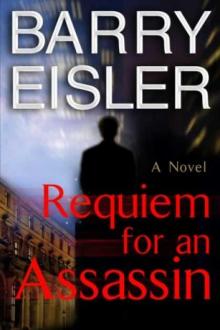 Requiem for an Assassin
Requiem for an Assassin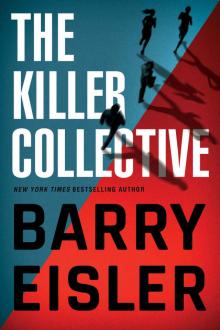 The Killer Collective
The Killer Collective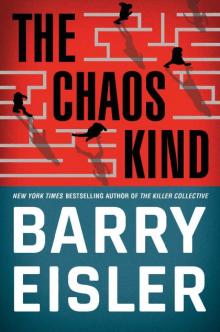 The Chaos Kind
The Chaos Kind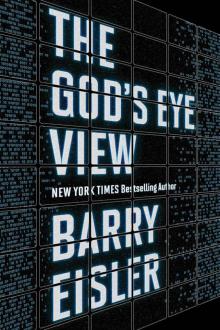 The God's Eye View
The God's Eye View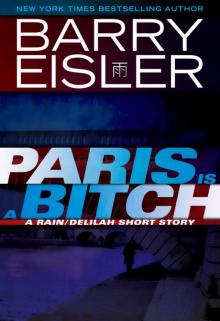 Paris is a Bitch
Paris is a Bitch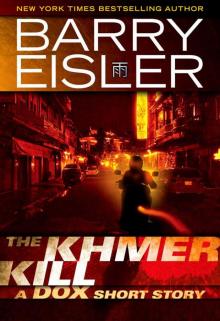 The Khmer Kill: A Dox Short Story (Kindle Single)
The Khmer Kill: A Dox Short Story (Kindle Single)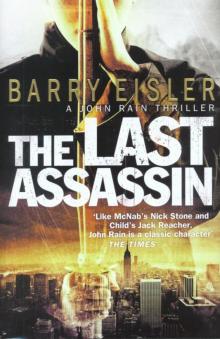 The Last Assassin
The Last Assassin The Detachment
The Detachment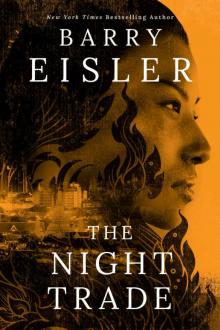 The Night Trade (A Livia Lone Novel Book 2)
The Night Trade (A Livia Lone Novel Book 2)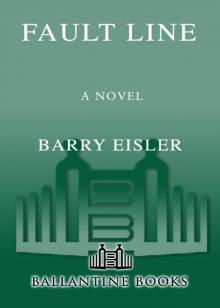 Fault Line
Fault Line Hard Rain
Hard Rain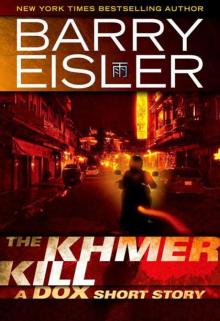 The Khmer Kill_A Dox Short Story
The Khmer Kill_A Dox Short Story London Twist: A Delilah Novella
London Twist: A Delilah Novella The Lost Coast
The Lost Coast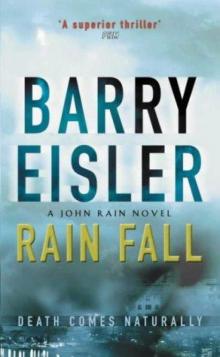 Rain Fall
Rain Fall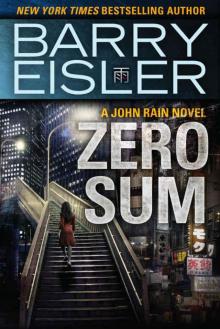 Zero Sum
Zero Sum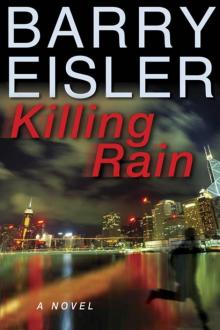 Killing Rain
Killing Rain John Rain 08: Graveyard of Memories
John Rain 08: Graveyard of Memories A Clean Kill in Tokyo (previously published as Rain Fall)
A Clean Kill in Tokyo (previously published as Rain Fall) Inside Out: A novel
Inside Out: A novel John Rain 07 - The Detachment
John Rain 07 - The Detachment Graveyard of Memories
Graveyard of Memories The Lost Coast -- A Larison Short Story
The Lost Coast -- A Larison Short Story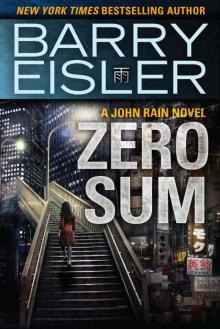 Zero Sum (A John Rain Novel)
Zero Sum (A John Rain Novel)